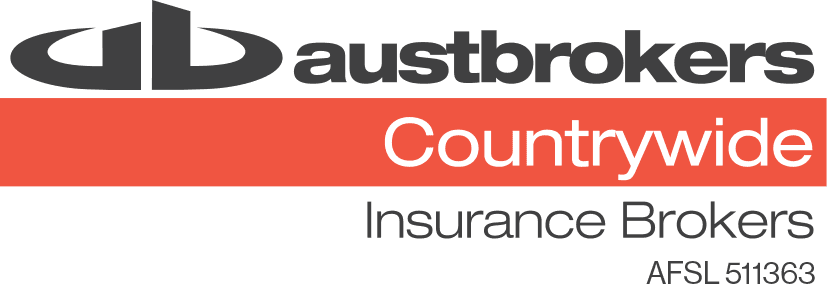
Key takeaways
- Restaurant and hospitality insurance can include a broad range of covers, from public liability insurance if someone becomes ill or injured in your venue, to payouts if any items kept at the premises are lost or stolen.
- Some insurance products are mandatory.
- Business interruption, machinery breakdown and contents insurance are all examples of optional insurances that can bring added peace of mind.
What types of insurance do restaurants and hospitality businesses need?
Because restaurants and other hospitality businesses have many moving parts, there is no one-size-fits-all insurance policy. In fact, there are dozens of overlapping policy inclusions to choose from.
It is important that you familiarise yourself with all of your options to ensure a small setback doesn’t turn into a serious threat. However, there is no need to be overwhelmed; most insurers will work with you to customize a policy that meets your exact business needs. Just make sure they explain any exclusions and limitations that apply to your policy.
To get you started in your search, here is a list of the policy types you are likely to encounter in your search results. They can be categorized into those that are required by law, and those that are optional.
Insurance products that are required by law
- Workers compensation. Protects you and your employees if you are injured on the job.
- Public liability. Protects your customers if they are injured or become ill in your restaurant.
- Third-party commercial motor insurance. This is only mandatory if your business uses a vehicle, such as a food delivery truck. It protects third parties from damages caused by your vehicles.
Optional insurance products
- Theft of contents and stock. Covers you for the theft of any contents or stock within your business. If you transport these goods, you’ll need the optional “goods in transit” policy option.
- Theft or damage to money. Covers you for any loss of cash due to theft or damage (such as a fire originating in the kitchen).
- Building and contents insurance. Covers you for damage to fixtures, fittings, contents and stock resulting from a number of unexpected situations including fire, explosion, water damage and vandalism.
- Business interruption. Covers you for loss of revenue if your business is interrupted by an insured event.
- Machinery breakdown. Covers you for unexpected equipment breakdown. If your freezer breaks down, it will cover the cost of the freezer's repair or replacement, but not for any spoiled food that results.
- Management liability. Covers you and the company from liability due to business mismanagement.
- Deterioration of stock. Covers you for the loss of any stock that has spoiled or deteriorated as a result of equipment malfunction.
- Portable and valuable items. Covers loss or damage to valuable items that you carry with you.
- Tax probe. Covers fees you incur if an official authority audits your business.

Finder survey: How many Australians from different states have business insurance?
| Response | WA | VIC | SA | QLD | NSW |
|---|---|---|---|---|---|
| I don't own a business | 79.34% | 64.03% | 73.12% | 73.73% | 66.06% |
| Yes | 11.57% | 19.47% | 8.6% | 13.82% | 18.96% |
| No | 9.09% | 16.5% | 18.28% | 12.44% | 14.98% |
Data for ACT, NT, TAS not shown due to insufficient sample size. Some other states may also be excluded for this reason.
Key risks when managing a restaurant
Opening a restaurant can be a highly rewarding experience, but it’s not without its challenges. It pays to be aware of the risks so that you can take the proper precautions. Here are some of the risks you might face.
- Cooking Fires. A fire in the kitchen can cause significant loss of life and property. Make sure your kitchen is up to code, keep the exhaust ducts clean and have an evacuation plan in place for employees and customers.
- Food poisoning. Food poisoning can lead to lawsuits and negative publicity for your restaurant. Minimise the chances of this occurring by storing food properly, using separate cutting boards for raw meat and thoroughly washing fruits and vegetables.
- Identity theft. Restaurants can be a revolving door for employees. Rogue employees could wreak havoc if they got their hands on another employee’s records or a customer’s credit card details. Make sure you have a secure document management system in place.
- Slips and falls. The hustle and bustle of a busy restaurant create the perfect atmosphere for slips and falls. Keep your floors well-maintained by mopping regularly and by promptly fixing leaks, cracks and loose tiles.
- Cuts and burns. The kitchen environment lends itself to cuts and burns. Make sure you have a first-aid kit on hand and that you keep it regularly stocked. Protect employees by equipping them with the correct personal protective equipment.
- Theft and vandalism. Small businesses are prime targets for thieves and vandals. You can protect your business by installing a security system and making it clear that you don’t keep cash on your premises overnight.
Need a business loan? Compare options for restaurants
Talk to a broker about restaurant and hospitality insurance
Receive a Quote for Business Insurance

Frequently Asked Questions
Sources
Ask a question
More guides on Finder
-
Farm insurance
Farm insurance can provide the protection Australian farmers need. It can include ✓ building insurance ✓ crop insurance ✓ livestock insurance
-
Types of Business Insurance
There are various types of insurance to consider based on your specific business needs. Find out more in this guide.
-
What truck insurance do I need?
Complete guide to getting insurance for trucks in Australia.
-
Workers’ compensation insurance. An essential thing for employers.
Read the Finder guide to workers compensation insurance and get cover in place.
-
Hourly Rate Calculator
This hourly rate calculator helps you consider your costs and profit and divide that by the number of hours you will work.
-
NRMA business insurance review
Read more about NRMA business insurance and its features.
-
Business at home insurance
If you run a business from home you need to make sure your business is properly insured. Read our guide to this specific type of business insurance and learn how to cover your home business.
-
Cyber Insurance Australia
Receive quotes for cyber liability insurance from Australian brands.
-
Commercial property insurance
Commercial property insurance is designed to protect business items.
-
Product Liability Insurance
When faulty products cause injury or loss, your business needs to protect itself with product liability insurance. Learn how product liability cover works and get quotes.
